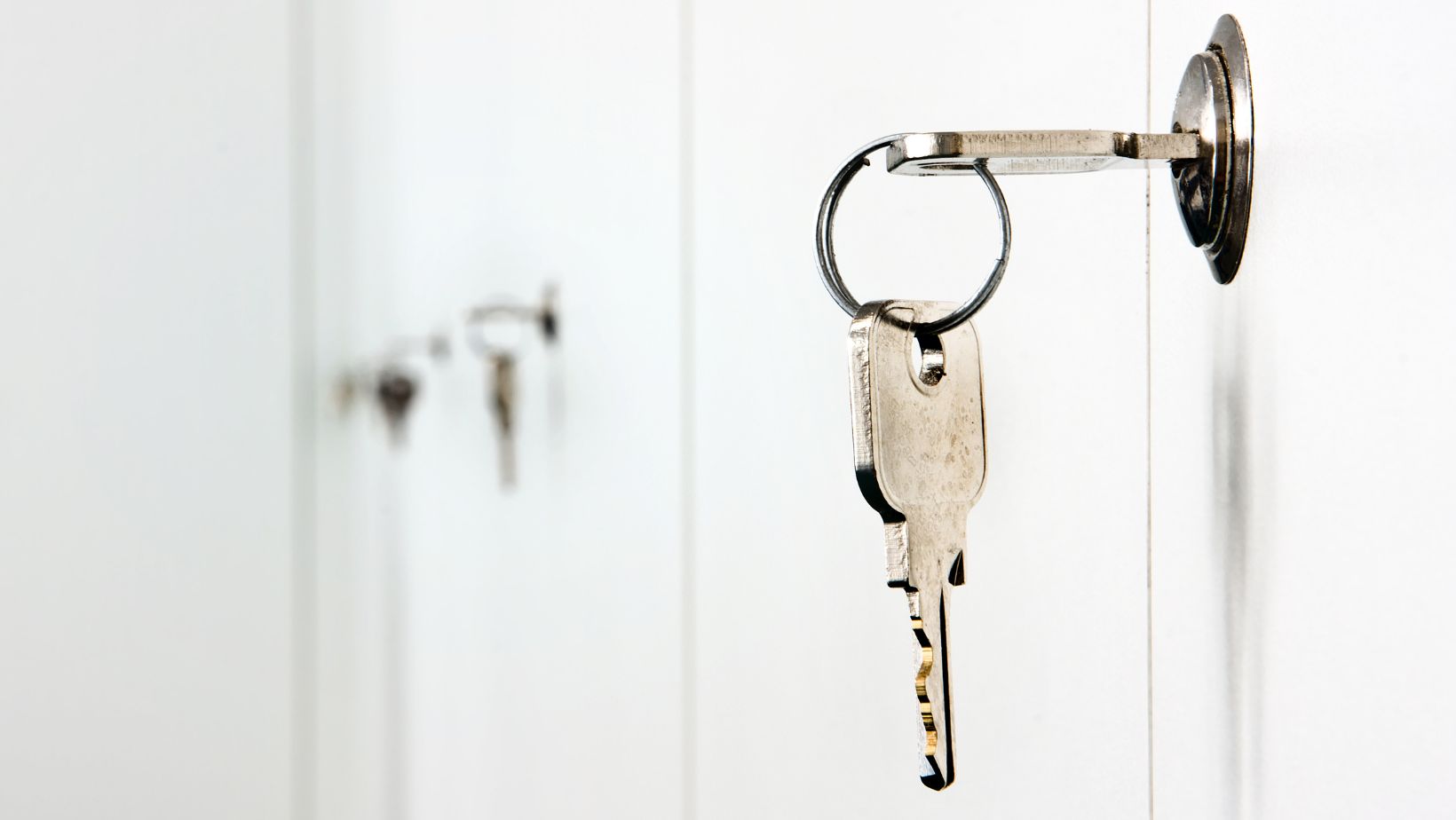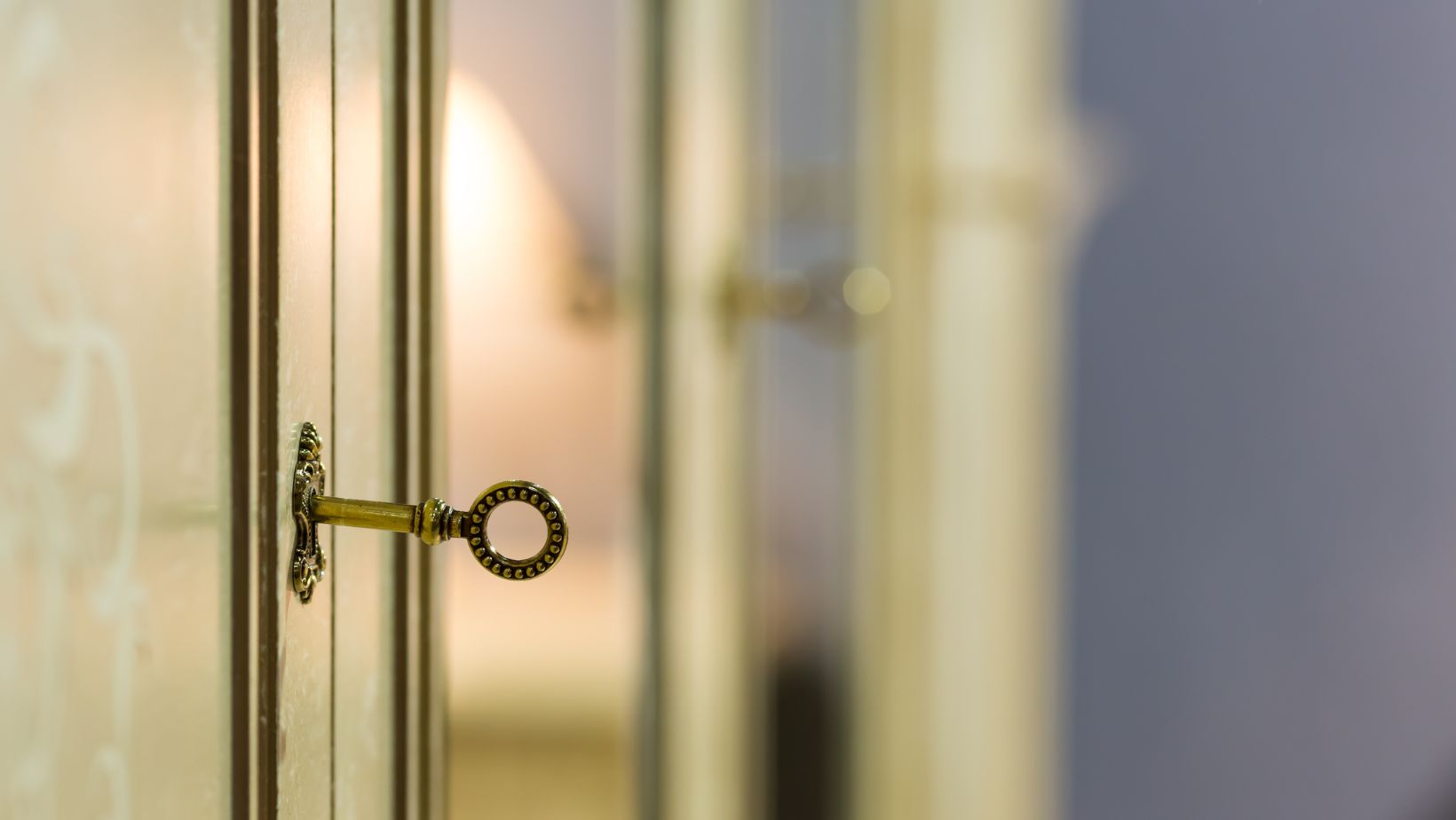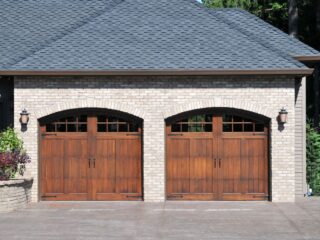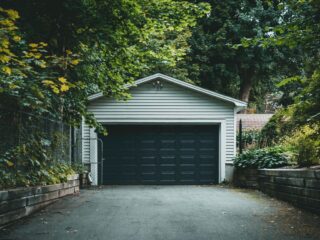
Locked closet doors can provide an added level of security and privacy to any space. Whether you want to keep valuable items out of reach or create a barrier between curious children and potentially hazardous materials, knowing how to properly lock your closet doors is essential. In this article, I’ll guide you through the steps to effectively secure your closet doors, ensuring peace of mind and organization.
Firstly, it’s important to determine the type of locking mechanism that your closet door has. Some common types include key locks, sliding bolt locks, and combination locks. Each mechanism requires a different approach when it comes to installation and usage. By understanding the specific type of lock on your closet door, you’ll be better equipped to follow the appropriate instructions for securing it.
How to Lock Closet Doors
Sliding closet doors
Sliding closet doors are a popular choice for many homeowners due to their sleek and space-saving design. These doors consist of two or more panels that slide horizontally on tracks, allowing easy access to the contents of the closet. They are commonly made from materials such as wood, glass, or mirrored surfaces.
One advantage of sliding closet doors is that they maximize the available floor space in a room since they don’t swing open like traditional hinged doors. They are especially beneficial for small rooms where every inch counts. Additionally, sliding doors can add a modern touch to any interior décor style.
Bi-fold closet doors
Bi-fold closet doors offer a practical and versatile solution for closets with limited space. These doors are made up of multiple hinged panels that fold in on themselves when opened, providing easy access to the entire width of the closet. They are typically constructed from materials like wood or vinyl.
The folding mechanism allows bi-fold doors to take up less floor space compared to swinging hinged doors. This makes them an excellent choice for tight spaces where conventional door swings may be inconvenient or obstructive. Bi-fold closet doors come in various styles and finishes, allowing you to find one that complements your room’s aesthetic seamlessly.
French closet doors
If you’re looking to add elegance and charm to your bedroom or walk-in closet, French closet doors might be just what you need. Also known as double-leafed or double-hinged doors, these classic-style options feature two adjoining panels that swing open from the center using hinges on either side.

Advantages of Locking Closet Doors
Locking closet doors can offer numerous benefits and provide a sense of security and organization to your living space. Here are some advantages to consider:
- Enhanced Privacy: By locking your closet doors, you can ensure that your personal belongings, sensitive documents, or valuable items are kept private and out of sight. This is particularly important if you share living spaces with roommates or family members.
- Increased Safety: Locking closet doors can act as an additional layer of protection for your belongings. It helps prevent unauthorized access and reduces the risk of theft or misplacement of valuables.
- Improved Organization: When you lock your closet doors, it encourages you to maintain a neat and organized space. Knowing that everything is securely tucked away motivates you to keep things in order and easily locate items when needed.
- Peace of Mind: Locking closet doors provide peace of mind, especially when you’re away from home for extended periods or have guests over. You can relax knowing that your personal items are safely stored behind locked doors.
- Childproofing: If you have young children at home, locking closet doors can help prevent them from accessing potentially dangerous objects or substances stored inside closets, such as cleaning supplies or medications.
- Aesthetics: In addition to their functional advantages, locked closet doors can enhance the overall aesthetic appeal of a room by creating a clean and streamlined look without any clutter visible from the outside.
In conclusion (Note: Removed “In conclusion”), dealing with common problems with closet door locks requires careful attention and troubleshooting skills. By addressing misalignment issues, resolving sticking/jamming problems, ensuring tight hardware, and considering lock upgrades, you can overcome these challenges and enjoy secure and hassle-free access to your closets. Remember, when in doubt, consult a professional locksmith for expert advice and assistance.





